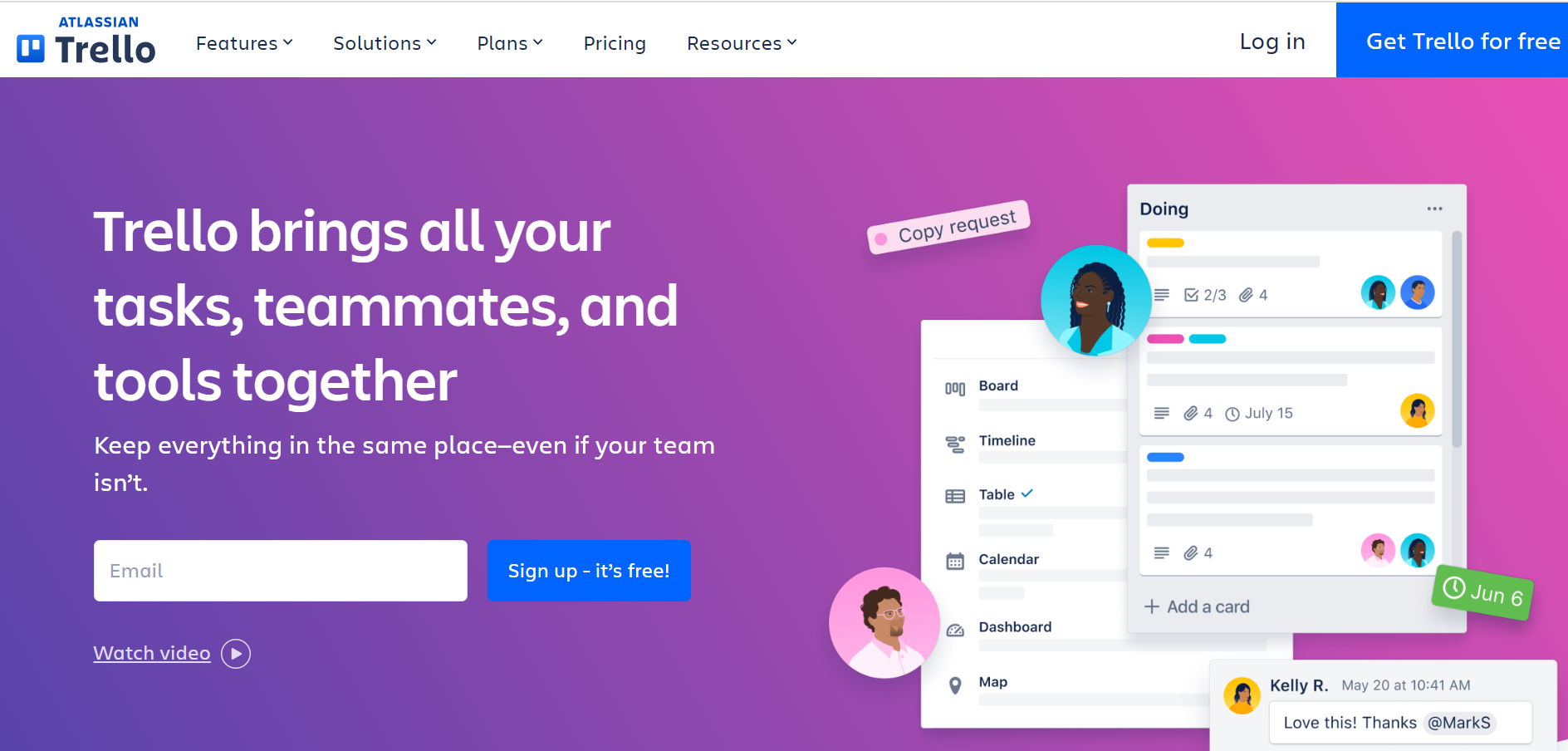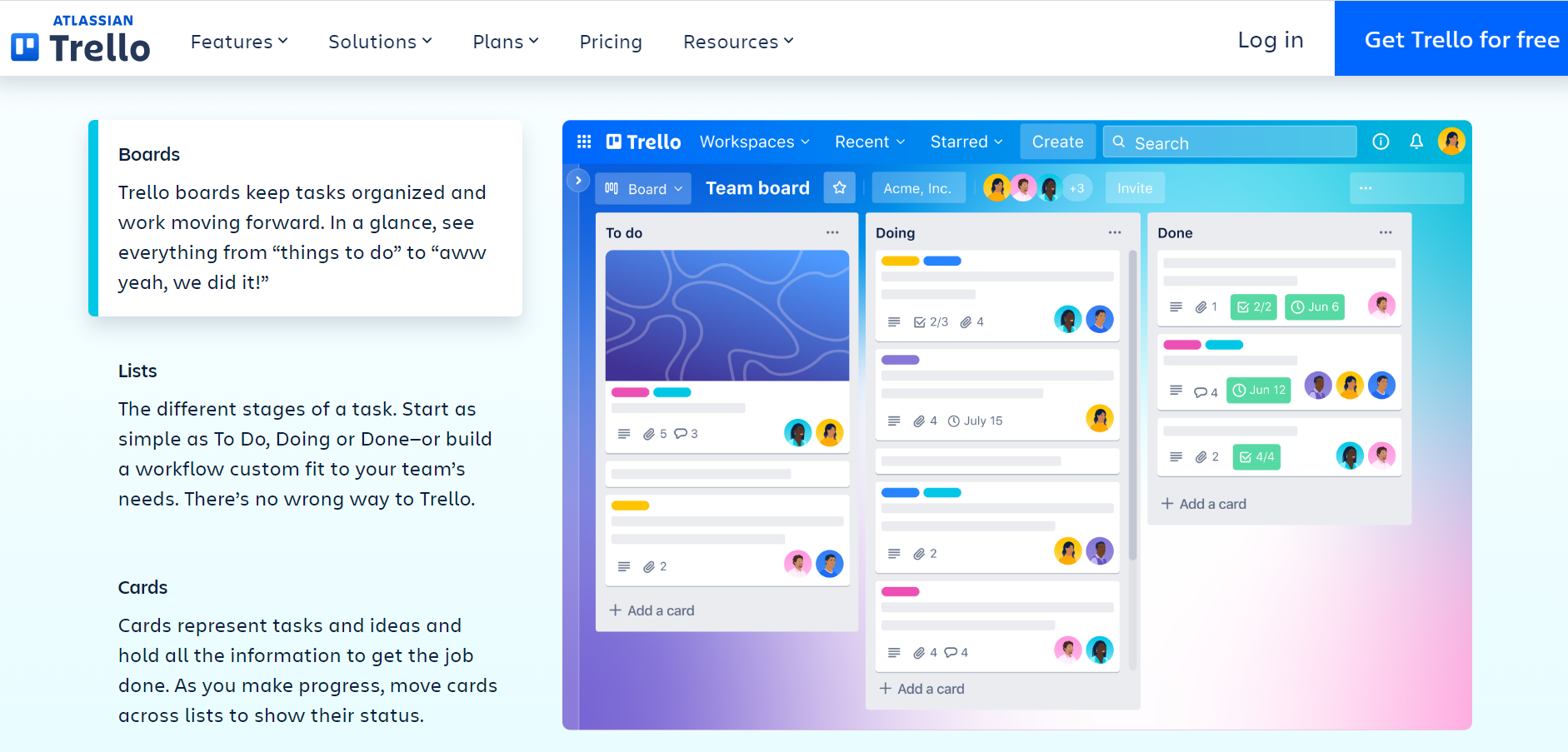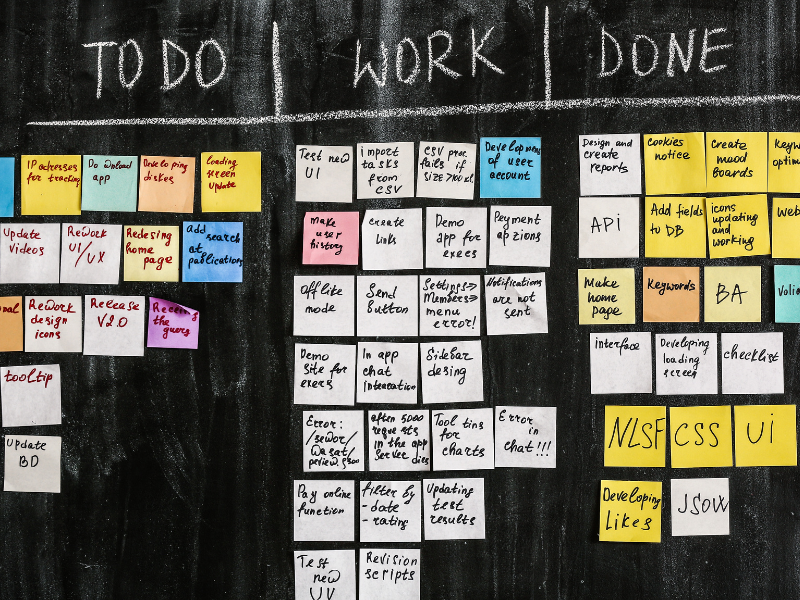Trello, a popular Kanban-style project management tool, makes assigning tasks and tracking deadlines less stressful and more efficient. Each team member can see the Kanban boards and follow through with the cards specifically assigned to them.
The good thing about Trello is everyone can keep track of the progress of each task. But while it is flexible and easy to use, can it be used for projects involving sensitive health data? Is Trello HIPAA compliant?
Here are some crucial things you should know about Trello and HIPAA compliance.
Table of Contents

The Need for Secure Project Management in Healthcare
Effective project management allows healthcare professionals to organize administrative tasks while safeguarding sensitive health information. How you oversee your projects and patients directly impacts your organization’s reputation and financial situation. If your project management software fails to meet HIPAA requirements, then your organization could face potential legal violations and fines.
Besides, efficient project management can open new opportunities to improve your existing inpatient and outpatient care methods. A seamless and secure project tool like Trello can enhance the quality of care you provide.

Is Trello HIPAA Compliant?
Unfortunately, Trello is not HIPAA compliant. Atlassian, the company behind it, strictly prohibits anyone from storing protected health information (PHI) in the software. That means medical providers can still use the tool for project management, provided they won’t attach anything with PHI.
Despite being non-compliant, Trello employs security measures to protect data, such as regular assessments, data backups, and end-to-end encryption. However, given HIPAA’s requirements for meeting compliance, more is needed for the platform to handle projects containing PHI.
Another crucial factor is the Business Associate Agreement (BAA), a legal document required to comply with HIPAA. In this case, Atlassian must provide BAAs to covered entities who intend to use Trello for projects requiring the storage and handling of sensitive health data. However, the contract states that Atlassian considers any patient, medical, or other protected health information as sensitive personal medical information, which Trello does not allow on its platform.
Benefits of Using Trello in Healthcare
Regardless of Trello’s restrictions concerning PHI handling, you can still benefit from it in many ways, such as:
Managing tasks all in one place
Trello can help you organize your appointments, schedules, and to-do lists. You can put a task description and set deadlines for each team member at any given time. Unlike other project management tools, it has a simple interface. All you have to do is organize your tasks into lists.
Meeting project deadlines
Once you’ve created a list of your tasks on Trello, you can add colorful labels to track goals and activities efficiently. There’s also an option to sync your calendar and see your deadlines for the day. You can even check your dashboard for the monthly report and see what’s ahead for the week.
Collaborating with colleagues
Integrating your favorite apps with Trello lets you collaborate directly with colleagues. Through its Zapier integration, you can effortlessly connect with popular cloud-based storage apps like Google Drive.

Limitations to Using Trello in Healthcare
But if there are pros, there are also limitations to using the project management platform, especially for healthcare professionals.
Not intended for healthcare use
Since Trello is not HIPAA-compliant, you can’t use it for medical and healthcare purposes. Plus, you cannot integrate it with EMR and EHR systems. Doing so could result in a HIPAA violation.
Patient data can be compromised
With Trello, sharing a board with others is easy but could warrant risks like unauthorized PHI disclosures and breaches. Anyone with a link to your Trello board can see your lists. Unauthorized people can save or delete your work accidentally in just one click.
Lack of security measures
Although designed for team collaboration, Trello isn’t supposed to store sensitive medical and financial data. One of the limitations of this platform is it only encrypts data in transit and not those at rest.
Alternatives to Trello for HIPAA-Compliant Project Management
If you’re looking into using Trello for storing PHI, it’s best to consider alternatives like the ones listed below:
Asana
Asana is a reliable and HIPAA-compliant task management app where you can safely store PHI. It has a centralized platform for managing deadlines and tracking individual progress. It also provides BAAs and employs military-grade encryption.
Clickup
As for ClickUp, it is user-friendly and highly customizable. It also abides by the HIPAA requirements such as secure access controls, data encryption, and 24/7 security monitoring. Moreover, you can use it for real-time collaboration and advanced task management.
Jira
As Trello’s sister product, Jira is a better alternative since it complies with HIPAA. This enterprise planning platform lets medical organizations monitor and optimize their tasks. Jira also employs encryption for file attachments that contain sensitive data like PHI.
Final Verdict: Trello Compliance
Overall, Trello is a good project management tool for simple tasks that don’t involve sensitive medical information. However, concerning HIPAA compliance, the platform fails to meet the Privacy and Security Rule requirements.
If storing or handling PHI is your priority, your best option would be to consider using a different project management software that’s HIPAA compliant.







